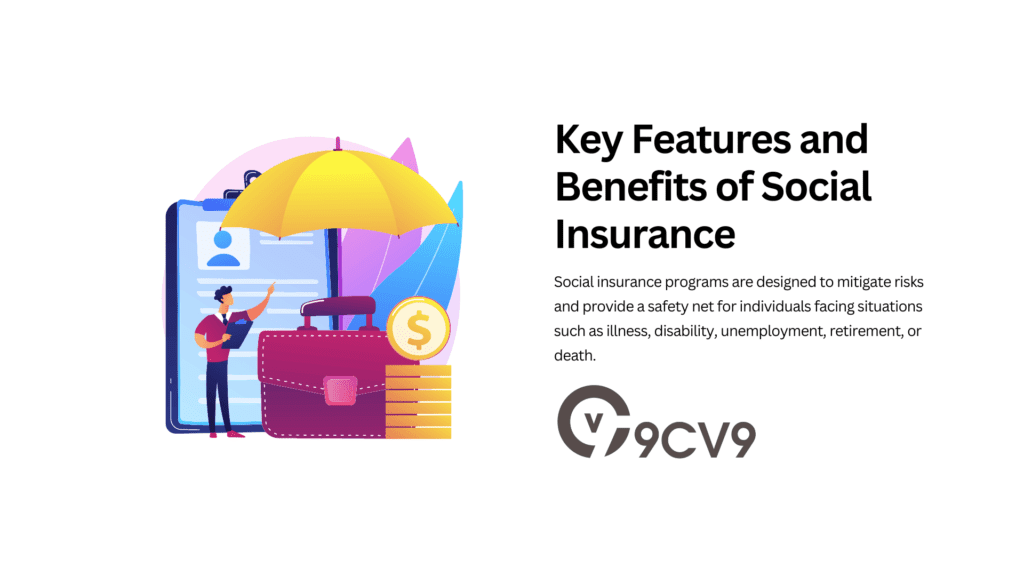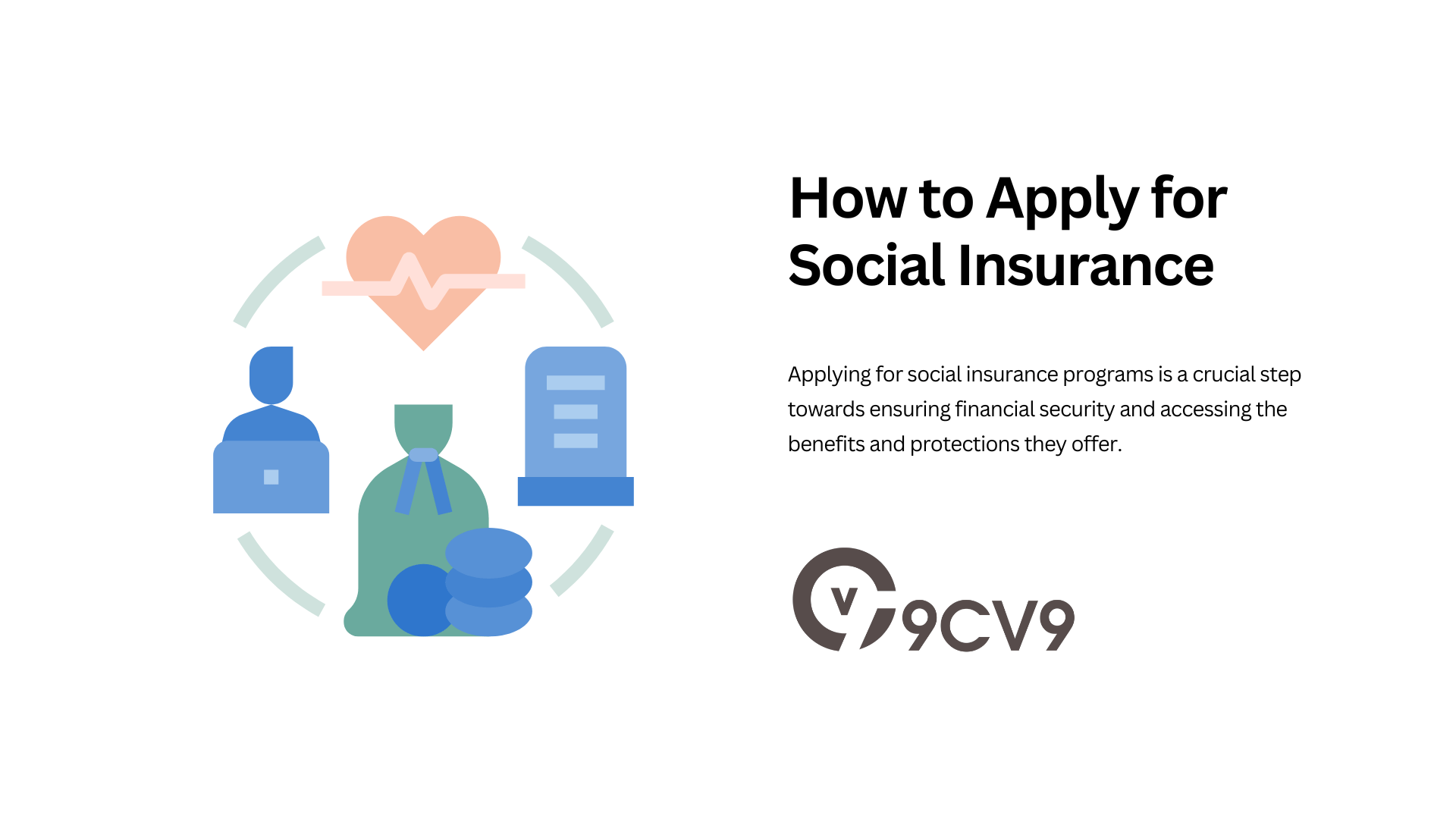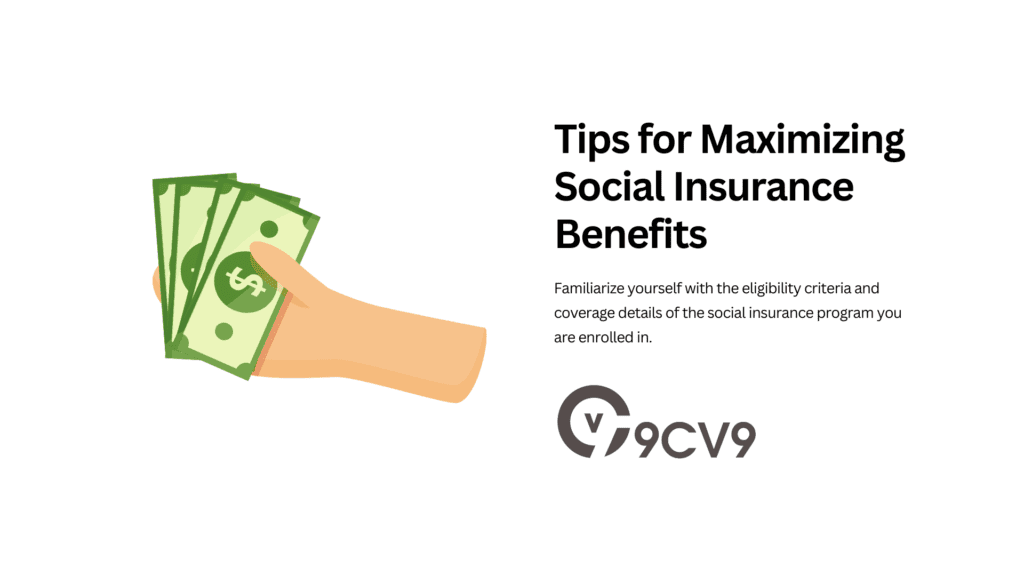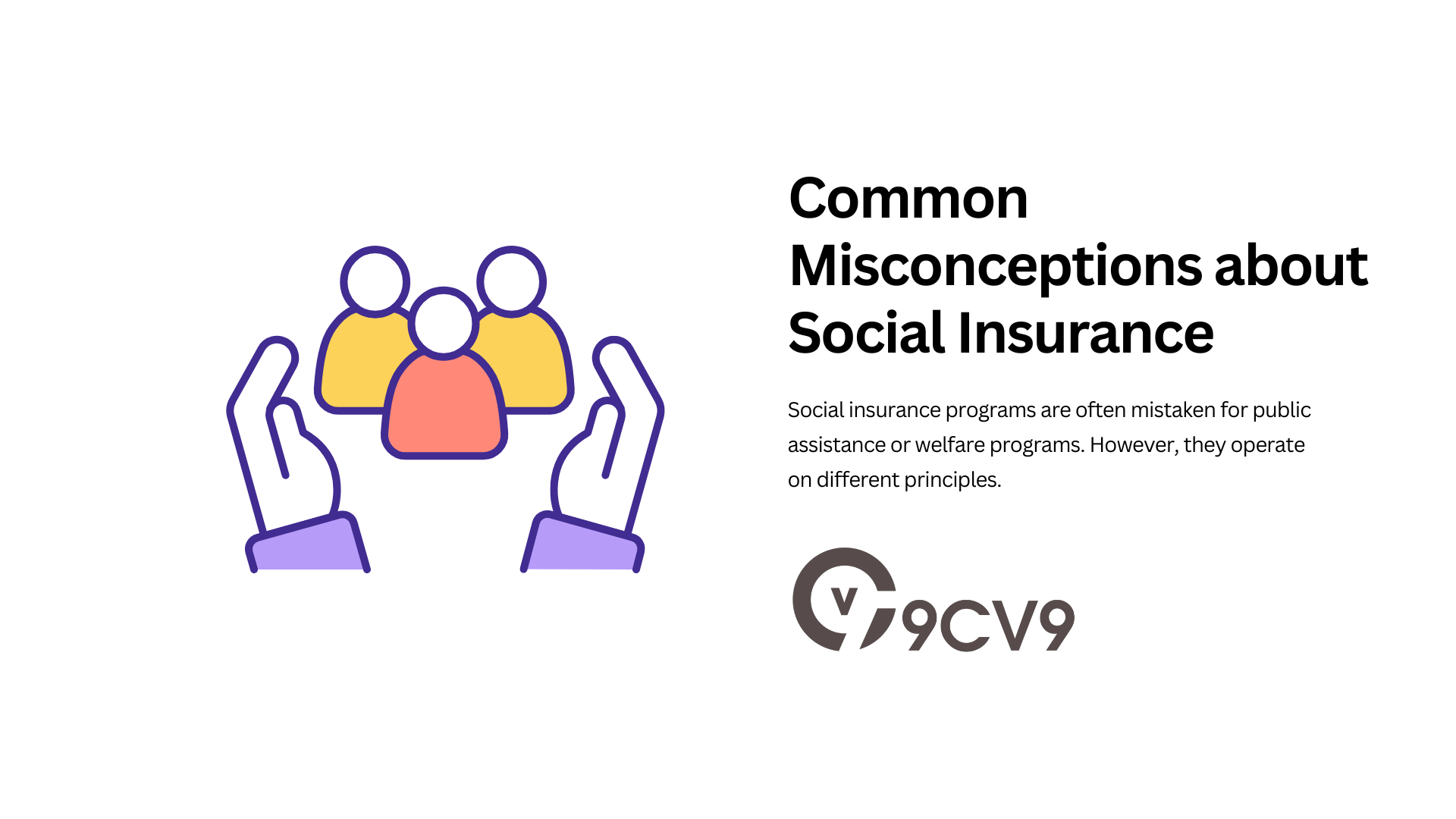Key Takeaways
- Social insurance in the Philippines provides crucial financial protection and support during various life events, such as illness, unemployment, and retirement.
- Familiarize yourself with the eligibility criteria, coverage details, and application process of social insurance programs to ensure you can access the benefits you are entitled to.
- By maximizing contributions, understanding program changes, and utilizing preventive services, you can optimize your social insurance benefits and secure your financial well-being in the Philippines.
Welcome to our comprehensive guide on understanding social insurance in the Philippines.
As citizens, it is crucial to have a solid grasp of the social insurance system to ensure financial stability, access to healthcare, and protection for you and your loved ones.
In this guide, we will walk you through the essential aspects of social insurance in the Philippines, including its types, benefits, application processes, and common misconceptions.
Whether you are a working professional, a parent, or planning for retirement, this guide aims to equip you with the knowledge needed to make informed decisions and maximize the benefits provided by the social insurance programs available.
Social insurance is an integral part of the Philippines’ social security framework, designed to provide financial support and access to essential services to individuals and families during various life circumstances.
The primary social insurance programs in the country are the Philippine Health Insurance Corporation (PhilHealth), the Social Security System (SSS), and the Government Service Insurance System (GSIS).
Understanding how these programs work, their eligibility criteria, and the benefits they offer is vital for every Filipino.
The Philippine Health Insurance Corporation (PhilHealth) is the national health insurance program that aims to ensure access to affordable and quality healthcare for all Filipinos.
PhilHealth provides coverage for inpatient and outpatient services, including hospitalization, surgeries, consultations, laboratory tests, and medications.
Whether you are employed or self-employed, knowing how to enroll, the contribution rates, and the benefits provided by PhilHealth are essential for managing healthcare costs and safeguarding your well-being.
The Social Security System (SSS) is another crucial social insurance program in the Philippines.
It provides comprehensive coverage for workers in the private sector, including employees, self-employed individuals, and voluntary members.
The SSS offers various programs, such as retirement, disability, sickness, maternity, and death benefits, ensuring financial protection throughout different stages of life.
Understanding the eligibility requirements, contribution rates, and application processes for these programs is essential to secure a stable future for yourself and your family.
For government employees, the Government Service Insurance System (GSIS) serves as their social insurance provider.
The GSIS offers benefits and programs tailored to the needs of government workers, including retirement benefits, life insurance, disability benefits, and loans.
If you are a government employee, it is vital to understand the features and requirements of GSIS to make the most of the benefits available to you.
The importance of social insurance extends beyond financial protection and healthcare coverage.
It serves as a safety net during retirement, ensuring a stable income stream and enabling individuals to enjoy their golden years with peace of mind.
Moreover, social insurance provides support in times of sickness, disability, and maternity, alleviating the financial burden and allowing individuals to focus on recovery and well-being.
Additionally, it offers survivorship benefits for dependents, providing financial security and stability in the event of a loss.
In this comprehensive guide, we will delve into each social insurance program, discussing their coverage, benefits, and eligibility criteria in detail.
We will provide step-by-step instructions on how to apply for social insurance, ensuring you are equipped with the knowledge to navigate the application processes seamlessly.
Furthermore, we will share valuable tips for maximizing your social insurance benefits, debunk common misconceptions, and shed light on the future trends and challenges facing the social insurance system in the Philippines.
Understanding social insurance in the Philippines is not only crucial for individuals but also for families and communities.
By empowering yourself with knowledge, you can make informed decisions, secure your financial well-being, and contribute to the overall social security of the nation.
Join us as we embark on this comprehensive journey to demystify social insurance in the Philippines and equip you with the tools needed to navigate the system with confidence and clarity.
Let’s dive in and explore the world of social insurance together.
Before we venture further into this article, we like to share who we are and what we do.
About 9cv9
9cv9 is a business tech startup based in Singapore and the Philippines, with a strong presence all over the world.
With over six years of startup and business experience, and being highly involved in connecting with thousands of companies and startups, the 9cv9 team has listed some important learning points in this overview of the guide of social insurance in the Philippines.
If your company needs recruitment and headhunting services to hire top-quality employees, you can use 9cv9 headhunting and recruitment services to hire top talents and candidates. Find out more here, or send over an email to [email protected].
Or just post 1 free job posting here at 9cv9 Hiring Portal in under 10 minutes.
Understanding Social Insurance in the Philippines: A Comprehensive Guide
- Types of Social Insurance in the Philippines
- Key Features and Benefits of Social Insurance
- How to Apply for Social Insurance
- Tips for Maximizing Social Insurance Benefits
- Common Misconceptions about Social Insurance
1. Types of Social Insurance in the Philippines
In the Philippines, the social insurance system comprises several programs designed to provide financial protection and access to essential services for individuals and families.
Understanding the different types of social insurance programs available is essential for every Filipino.
Let’s explore the major social insurance programs in the Philippines and gain insights into their coverage, benefits, and eligibility criteria.
Philippine Health Insurance Corporation (PhilHealth)

The Philippine Health Insurance Corporation, commonly known as PhilHealth, is the national health insurance program in the Philippines.
It aims to ensure that all Filipinos have access to affordable and quality healthcare services. PhilHealth provides coverage for a wide range of medical needs, including hospitalization, surgeries, consultations, laboratory tests, medications, and preventive care.
To avail of PhilHealth benefits, individuals must be registered members and regularly contribute their premiums. Membership is open to various groups, including employees, self-employed individuals, overseas Filipino workers (OFWs), and indigent individuals identified by the government.
The contribution rates are based on the member’s monthly income or a fixed amount for self-employed individuals.
PhilHealth offers different benefit packages, such as the All Case Rate, which covers specific medical conditions at predetermined rates, and the Z Benefit Package, which provides coverage for catastrophic illnesses.
By being a PhilHealth member, individuals can significantly reduce their out-of-pocket expenses for medical treatments and services.
Social Security System (SSS)

The Social Security System (SSS) is a social insurance program primarily catering to workers in the private sector, including employees, self-employed individuals, and voluntary members.
The SSS provides comprehensive coverage and various benefits to ensure financial security during different life stages.
The key programs offered by the SSS include:
- Retirement Benefit: This program provides a regular monthly pension to members who have reached the retirement age and have contributed the required number of monthly contributions.
- Disability Benefit: Individuals who become permanently disabled and unable to work due to sickness or injury can avail of the SSS disability benefit. It provides a cash benefit to help replace lost income.
- Sickness Benefit: The SSS sickness benefit offers financial assistance to members who are unable to work due to illness or injury. It covers a portion of the member’s daily salary or income for the duration of the sickness or injury.
- Maternity Benefit: Pregnant female members are entitled to maternity benefits, which include cash assistance for prenatal and postnatal care, childbirth expenses, and a daily maternity allowance for the duration of the maternity leave.
- Death Benefit: In the unfortunate event of a member’s death, the SSS provides death benefits to the deceased member’s beneficiaries. This includes a lump-sum amount, monthly pension for eligible dependents, and funeral assistance.
It is crucial to understand these aspects to ensure that you meet the requirements and receive the maximum benefits available.
Government Service Insurance System (GSIS)

The Government Service Insurance System (GSIS) is the social insurance provider for government employees in the Philippines.
It offers various benefits and programs tailored to the needs of public sector workers.
The key programs and benefits provided by GSIS include:
- Retirement Benefit: Government employees who have rendered the required number of years in service can avail of the GSIS retirement benefit. It provides a lifetime monthly pension to support retirees during their retirement years.
- Life Insurance: GSIS offers life insurance coverage to government employees. This ensures that their beneficiaries receive a lump-sum amount in case of the member’s death, providing financial security for the family.
- Disability Benefit: In the event of disability that renders a government employee permanently unable to work, the GSIS disability benefit offers financial assistance to replace lost income.
- Loans and Housing Programs: GSIS provides various loan programs, such as the GSIS Consolidated Loan (Conso Loan) and the GSIS Housing Loan, to support government employees in their financial needs.
Contribution rates are deducted from their salaries and remitted to GSIS.
It is important for government employees to stay informed about the different programs and benefits offered by GSIS to make the most of their membership.
Understanding the types of social insurance programs in the Philippines is essential for individuals and families to access the appropriate benefits and services.
Whether it’s securing affordable healthcare through PhilHealth, ensuring a stable future with SSS, or enjoying comprehensive coverage as a government employee through GSIS, being knowledgeable about these programs allows Filipinos to protect their financial well-being and that of their loved ones.
Remember to stay updated with the latest changes, contribution rates, and eligibility requirements to make the most of the social insurance system in the Philippines.
Also, read on how to hire top employees in the Philippines here.
2. Key Features and Benefits of Social Insurance

Social insurance is a vital component of any modern society, providing individuals and families with financial protection and support during challenging times.
Social insurance programs are designed to mitigate risks and provide a safety net for individuals facing situations such as illness, disability, unemployment, retirement, or death.
In this section, we will explore the key features and benefits of social insurance, highlighting its importance and the advantages it offers to individuals and society as a whole.
- Risk Pooling: One of the fundamental features of social insurance is risk pooling. Social insurance programs collect contributions from a large pool of individuals and distribute the benefits to those in need. By pooling resources, social insurance programs can spread the financial risks associated with specific events or circumstances across a broader population. This ensures that the burden of financial hardships is shared collectively, reducing the impact on individuals and providing a more stable and sustainable system.
- Financial Protection: Social insurance provides individuals and families with financial protection during times of crisis or vulnerability. It acts as a safety net, helping individuals cope with unexpected expenses and income loss. Whether it’s covering medical costs, providing disability benefits, or offering unemployment benefits, social insurance programs ensure that individuals have access to essential financial support when they need it most. This protection alleviates financial stress, prevents individuals from falling into poverty, and promotes social and economic stability.
- Access to Essential Services: Social insurance programs often come with access to essential services that may otherwise be financially burdensome for individuals. For example, health insurance programs provide coverage for medical treatments, preventive care, and medications, ensuring that individuals can access necessary healthcare services without incurring exorbitant expenses. Similarly, unemployment benefits not only provide income support during job loss but may also include access to job placement services and training programs to facilitate reemployment. Social insurance programs bridge the gap between financial support and access to critical services, promoting overall well-being and ensuring equal opportunities for individuals.
- Long-Term Planning and Security: Social insurance programs encourage individuals to engage in long-term planning and provide a sense of security for the future. Retirement programs, such as pensions or provident funds, allow individuals to accumulate savings over their working years, ensuring a stable income during retirement. This enables individuals to plan for their future needs, maintain their standard of living, and enjoy a dignified retirement. Social insurance promotes financial literacy and responsible financial management, fostering a culture of long-term security and reducing the burden on public welfare systems.
- Social Cohesion and Equality: Social insurance plays a crucial role in fostering social cohesion and reducing inequality within society. By providing universal access to essential benefits and services, social insurance programs ensure that individuals from all walks of life have equal opportunities and protection. Social insurance promotes a sense of solidarity and fairness, as contributions are based on an individual’s ability to pay and benefits are provided based on need. This helps to bridge gaps in income inequality, reduce social disparities, and promote a more inclusive and cohesive society.
- Economic Stability and Productivity: Social insurance programs contribute to economic stability and productivity by providing individuals with a sense of security and stability. When individuals have access to essential benefits, they are more likely to maintain their well-being, seek appropriate healthcare, and engage in productive activities. This leads to a healthier and more productive workforce, benefiting both individuals and the economy as a whole. Social insurance programs also act as automatic stabilizers during economic downturns, providing income support and stabilizing aggregate demand, thereby mitigating the negative impact of recessions.
Social insurance programs offer a range of key features and benefits that contribute to the well-being of individuals and society.
By pooling resources, providing financial protection, granting access to essential services, promoting long-term planning, fostering social cohesion, and ensuring economic stability, social insurance programs play a crucial role in safeguarding individuals against risks and promoting a more equitable and resilient society.
Understanding the importance of social insurance and actively participating in these programs is essential for individuals to secure their financial future and contribute to the overall welfare of society.
And if you are looking to hire top employees as well, in tandem to applying for their social insurance, then we have listed down the top 10 job boards in the Philippines here.
3. How to Apply for Social Insurance

Applying for social insurance programs is a crucial step towards ensuring financial security and accessing the benefits and protections they offer.
Whether it’s health insurance, retirement benefits, or disability coverage, understanding the application process is essential.
In this section, we will provide a comprehensive guide on how to apply for social insurance, outlining the general steps and considerations involved.
- Research and Gather Information: Start by researching the specific social insurance program you wish to apply for. Each program may have different eligibility criteria, application requirements, and documentation. Visit the official website of the respective social insurance agency or contact their customer service to gather accurate and up-to-date information. Understanding the program’s benefits, contribution requirements, and application procedures will help you navigate the process more effectively.
- Determine Eligibility: Review the eligibility criteria for the social insurance program. Ensure that you meet the necessary requirements, such as age, employment status, income thresholds, or membership duration. Eligibility criteria may vary depending on the program and your specific circumstances. If you have any doubts, contact the social insurance agency or consult with a representative to clarify your eligibility.
- Complete the Application Form: Obtain the application form for the social insurance program you wish to apply for. You can usually find the form on the agency’s website or request it from their office. Carefully read and understand the instructions provided with the application form. Fill out the form accurately and legibly, providing all the required information. Double-check the form to ensure that there are no errors or missing details.
- Prepare Supporting Documents: Social insurance applications often require supporting documents to verify your identity, employment status, income, and other relevant information. Common documents may include identification cards, proof of address, birth certificates, employment records, income statements, or medical certificates. Make a checklist of the required documents and gather them beforehand to avoid any delays in the application process. Ensure that all documents are valid, up-to-date, and meet the agency’s specifications.
- Submit the Application: Once you have completed the application form and gathered the necessary supporting documents, it’s time to submit your application. Follow the instructions provided on the application form or the agency’s website to determine the submission method. Some agencies allow online applications, while others may require physical submission at their office or designated centers. Pay attention to submission deadlines, if any, to ensure your application is processed in a timely manner.
- Follow-Up and Communication: After submitting your application, it is important to follow up on its status. Keep track of any reference numbers or confirmation receipts provided during the application process. Check the agency’s website or contact their customer service to inquire about the processing time and any additional steps required. Be prepared to provide additional information or attend interviews, if requested. Stay accessible and responsive to any communication from the agency to avoid delays in processing your application.
- Keep Documentation and Records: It is advisable to keep copies of all the application forms, supporting documents, and correspondence related to your social insurance application. This documentation will serve as proof of your application, facilitate future inquiries or updates, and help you track your benefits and contributions. Organize these records in a safe and easily accessible manner for future reference.
- Stay Informed and Update Information: Once your application is approved, it is important to stay informed about the program’s rules, benefits, and any changes that may occur. Regularly check the agency’s website or subscribe to their newsletters for updates. Notify the agency promptly about any changes in your personal information, such as address, contact details, or employment status, to ensure seamless communication and uninterrupted benefits.
Applying for social insurance programs requires careful preparation, attention to detail, and adherence to the agency’s guidelines.
By following these steps and staying proactive throughout the application process, you can maximize your chances of successfully accessing the benefits and protections provided by social insurance programs.
Remember, each program may have specific requirements, so it is essential to refer to the official guidelines and seek assistance from the social insurance agency when needed.
Social Insurance is mandatory and useful for your staff, or else you will be liable to stiff legal penalties and labeled a scam company.
4. Tips for Maximizing Social Insurance Benefits

Social insurance programs are designed to provide individuals with financial protection and support during various life circumstances.
Whether it’s health insurance, unemployment benefits, or retirement plans, understanding how to maximize the benefits available to you is crucial.
In this section, we will provide valuable tips to help you make the most of your social insurance benefits and ensure your financial well-being.
- Understand Your Eligibility and Coverage: Familiarize yourself with the eligibility criteria and coverage details of the social insurance program you are enrolled in. Each program may have specific requirements, such as minimum contribution periods, income thresholds, or qualifying events. Understanding your eligibility will help you determine which benefits you are entitled to and ensure you receive the appropriate coverage.
- Stay Updated on Program Changes: Social insurance programs often undergo updates and changes to keep pace with evolving needs and regulations. Stay informed about any modifications to your social insurance program by regularly visiting the official website, subscribing to newsletters or updates, or contacting the program’s customer service. Being aware of changes will help you take advantage of new benefits or adjust your financial plans accordingly.
- Maximize Contributions: If your social insurance program involves contributions, consider maximizing your contributions whenever possible. Contributing the maximum amount allows you to maximize the benefits you are eligible to receive. Calculate the optimal contribution amount based on your financial situation and long-term goals. Consult with a financial advisor, if necessary, to ensure you are making the most informed decisions.
- Utilize Preventive Services: Many health insurance programs offer preventive services at no additional cost. Take advantage of these services, such as annual check-ups, vaccinations, and screenings, to maintain your health and detect potential issues early on. Preventive care not only promotes your well-being but also helps avoid costly medical treatments in the long run.
- Explore Additional Benefits: Social insurance programs often provide supplementary benefits beyond the core coverage. Take the time to explore these additional benefits and understand how they can support your specific needs. For example, retirement programs may offer education and counseling services to help you plan for your financial future. Familiarize yourself with all the benefits available to you and utilize them to their full extent.
- Optimize Timing: Depending on the social insurance program, the timing of when you access certain benefits can significantly impact their value. For instance, in retirement programs, delaying the start of your pension payments may result in higher monthly benefits. Consider the potential advantages of timing your benefit withdrawals strategically and assess how it aligns with your overall financial goals.
- Seek Professional Advice: When it comes to maximizing your social insurance benefits, seeking professional advice can be invaluable. Financial advisors, tax professionals, or social insurance specialists can provide personalized guidance tailored to your specific situation. They can help you navigate complex rules, optimize your benefit strategies, and ensure you are making informed decisions.
- Review and Update Your Information: Regularly review your personal information on file with the social insurance program and make necessary updates. Changes in address, marital status, dependents, or employment status can impact your eligibility and benefit calculations. Keeping your information accurate and up-to-date helps ensure seamless communication and prevents any disruptions in receiving your benefits.
- Understand the Application Process: If you are applying for a social insurance program, take the time to understand the application process thoroughly. Follow the guidelines provided, submit all required documents, and keep copies of your application materials for reference. Adhering to the correct procedures increases the likelihood of a smooth application process and timely approval of your benefits.
- Maintain Documentation: Keep organized records of all your social insurance-related documents, including application forms, benefit statements, correspondence, and payment receipts. These records serve as proof of your participation in the program, the benefits you are entitled to, and the contributions you have made. Having organized documentation ensures easy access to information and simplifies any future inquiries or updates.
Maximizing your social insurance benefits requires a combination of knowledge, proactive planning, and regular review.
By implementing these tips, you can optimize the advantages offered by social insurance programs, secure your financial well-being, and ensure you receive the support you deserve during critical life events.
5. Common Misconceptions about Social Insurance

Social insurance programs play a vital role in providing financial protection and support to individuals and families during challenging times.
However, there are several misconceptions surrounding these programs that can lead to misunderstandings and misinformed decisions.
In this section, we will debunk some of the common misconceptions about social insurance, providing clarity and accurate information to help you better understand these crucial programs.
- Misconception: Social Insurance is the Same as Public Assistance Reality: Social insurance programs are often mistaken for public assistance or welfare programs. However, they operate on different principles. Social insurance is based on contributions made by individuals and employers, ensuring that benefits are earned through participation and eligibility requirements. Public assistance programs, on the other hand, are means-tested and provide assistance to individuals based on their income and assets.
- Misconception: Social Insurance Programs are Only for the Unemployed or Low-Income Individuals Reality: Social insurance programs are designed to provide financial protection and support to individuals across various income levels. While some programs may have income-based eligibility criteria for certain benefits, many programs, such as health insurance or retirement plans, are accessible to individuals regardless of their income level. Social insurance is meant to benefit all individuals, regardless of their employment status or income level.
- Misconception: Social Insurance Benefits are Handouts or Free Money Reality: Social insurance benefits are not handouts or free money. They are earned through contributions made by individuals and employers over time. These contributions fund the social insurance programs and ensure that benefits are available when individuals face qualifying events such as illness, disability, unemployment, or retirement. Social insurance benefits are a form of financial protection that individuals have paid into to receive support when needed.
- Misconception: Social Insurance Programs Will Cover 100% of Expenses Reality: Social insurance programs provide financial protection, but they may not cover 100% of all expenses. The extent of coverage varies depending on the program and the specific benefit. For example, health insurance may cover a portion of medical expenses, but there may still be deductibles, co-pays, or limitations on certain treatments or services. Retirement programs provide a percentage of the income earned during working years, but it may not replace the entire pre-retirement income. It is important to understand the coverage limitations and plan accordingly.
- Misconception: Social Insurance Programs are Unsustainable or Going Bankrupt Reality: While concerns about the sustainability of social insurance programs are sometimes raised, it is essential to note that these programs are continually evaluated and adjusted to ensure their long-term viability. Governments and social insurance agencies regularly assess funding mechanisms, contribution rates, and benefit structures to maintain the stability and sustainability of these programs. The goal is to adapt to changing demographics and economic conditions while providing adequate support to beneficiaries.
- Misconception: Social Insurance Programs are Only for Citizens Reality: Social insurance programs may extend benefits to both citizens and eligible non-citizens, depending on the specific program and the country’s regulations. Many social insurance programs consider residency or employment status as key factors in determining eligibility. Non-citizens who meet the residency and contribution requirements may be eligible for certain benefits within the social insurance system.
- Misconception: Social Insurance Programs Discourage Personal Responsibility and Savings Reality: Social insurance programs are not intended to replace personal responsibility and savings. They serve as a safety net during unforeseen events or circumstances. It is still crucial for individuals to engage in responsible financial planning, save for retirement, and have appropriate insurance coverage. Social insurance programs provide an additional layer of protection and support, complementing personal efforts towards financial security.
- Misconception: Social Insurance Programs are Optional Reality: In most cases, participation in social insurance programs is mandatory for eligible individuals. Whether it’s through mandatory payroll deductions or other contribution mechanisms, participation ensures a broader risk-sharing pool and the sustainability of the programs. It is important to understand the legal requirements and obligations associated with social insurance programs in your specific jurisdiction.
- Misconception: Social Insurance Programs Only Provide Monetary Benefits Reality: While monetary benefits are a significant aspect of social insurance programs, they are not the only form of support provided. Depending on the program, additional benefits may include access to healthcare services, vocational training, job placement assistance, disability accommodations, or survivor benefits for families. These non-monetary benefits aim to address the holistic needs of individuals and provide comprehensive support.
- Misconception: Social Insurance Programs are One-Size-Fits-All Reality: Social insurance programs often offer different benefits and options to accommodate diverse needs. Programs may have various plans or tiers to cater to different income levels or specific circumstances. It is important to research and understand the available options within the social insurance program to choose the ones that best align with your unique needs and goals.
By dispelling these common misconceptions, we can develop a better understanding of social insurance programs and make informed decisions regarding our participation and utilization of these crucial support systems.
Social insurance programs are designed to provide financial protection and promote social welfare, and it is essential to have accurate information to fully appreciate their value.
Conclusion
Understanding social insurance in the Philippines is essential for individuals and families to secure their financial well-being and protect themselves against various risks.
This comprehensive guide has provided valuable insights into the concept of social insurance, the types of programs available, key features and benefits, the application process, and tips for maximizing social insurance benefits.
Social insurance programs, such as the Social Security System (SSS) and the Government Service Insurance System (GSIS), play a crucial role in providing financial protection and support during critical life events.
These programs encompass a wide range of benefits, including healthcare coverage, retirement plans, disability benefits, and more.
By actively participating in social insurance programs, individuals can access these benefits and ensure their financial security.
Throughout this guide, we have debunked common misconceptions surrounding social insurance, such as the belief that it is equivalent to public assistance or that it only benefits low-income individuals.
It is important to understand that social insurance is based on contributions and provides earned benefits to individuals across various income levels.
When applying for social insurance, it is crucial to research eligibility criteria, complete application forms accurately, and gather the required supporting documents.
Staying informed about program changes, maximizing contributions, and utilizing preventive services are key strategies for maximizing social insurance benefits.
Seeking professional advice and regularly reviewing and updating your information are also important steps in ensuring you receive the full benefits you are entitled to.
Social insurance programs in the Philippines are continuously evaluated and adjusted to ensure their sustainability and effectiveness.
While challenges may arise, efforts are made to strike a balance between providing adequate support and maintaining the long-term viability of these programs.
It is essential for individuals to actively participate in social insurance programs and contribute to the overall welfare of society.
By understanding and actively engaging with social insurance programs, individuals can protect themselves and their families from the financial burden of unforeseen circumstances.
Social insurance serves as a safety net, offering peace of mind and financial stability during times of need.
It is a collective effort that strengthens the social fabric of the nation and promotes a more equitable and resilient society.
Social insurance programs in the Philippines are valuable tools for securing your financial future and protecting yourself against life’s uncertainties.
By familiarizing yourself with the types of programs available, understanding the application process, and maximizing your benefits, you can navigate the social insurance landscape effectively and make informed decisions that enhance your financial well-being.
Remember, social insurance is not just a personal endeavor but a shared responsibility.
By actively participating in these programs, you contribute to the collective strength of the social insurance system, ensuring its sustainability for generations to come.
If your company needs HR, hiring, or corporate services, you can use 9cv9 hiring and recruitment services. Book a consultation slot here, or send over an email to [email protected].
If you find this article useful, why not share it with your hiring manager and C-level suite friends and also leave a nice comment below?
We, at the 9cv9 Research Team, strive to bring the latest and most meaningful data, guides, and statistics to your doorstep.
To get access to top-quality guides, click over to 9cv9 Blog.
People Also Ask
What are the social insurance programs in the Philippines?
The social insurance programs in the Philippines include the Social Security System (SSS), Government Service Insurance System (GSIS), Philippine Health Insurance Corporation (PhilHealth), and Pag-IBIG Fund (Home Development Mutual Fund). These programs provide benefits such as healthcare coverage, retirement plans, disability benefits, and housing assistance to eligible individuals.
How much does Social Security pay in the Philippines?
The amount of Social Security benefits paid in the Philippines varies depending on several factors, such as the individual’s average monthly salary credit, total number of contributions, and the specific benefit being claimed. The Social Security System (SSS) has a formula to calculate the benefit amount, which considers these factors. It is recommended to consult the SSS or access their online calculators for personalized estimates.
Is there any Social Security in the Philippines?
Yes, there is a social security system in the Philippines known as the Social Security System (SSS). It is a government agency that provides social insurance programs to workers in the private sector. The SSS offers various benefits, including retirement, disability, sickness, maternity, and death benefits, to eligible members and their beneficiaries.































![Writing A Good CV [6 Tips To Improve Your CV] 6 Tips To Improve Your CV](https://blog.9cv9.com/wp-content/uploads/2020/06/2020-06-02-2-100x70.png)


